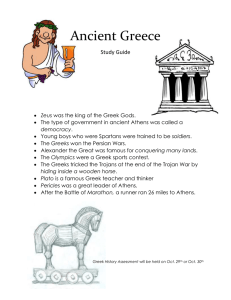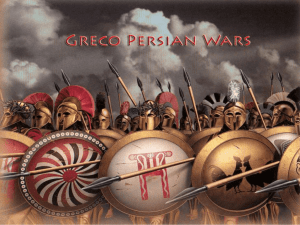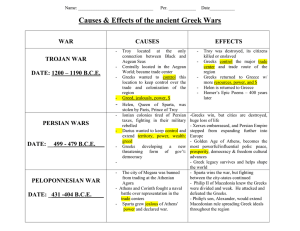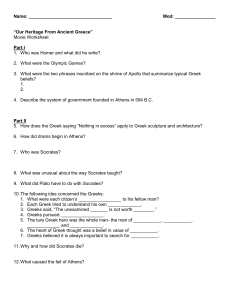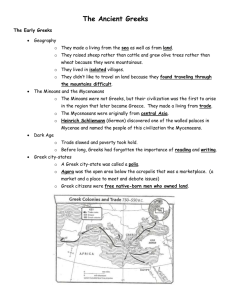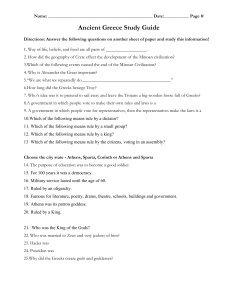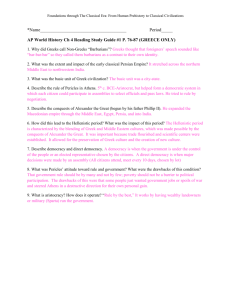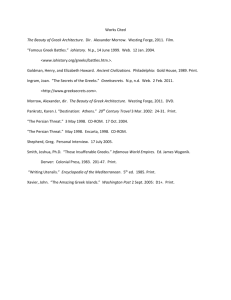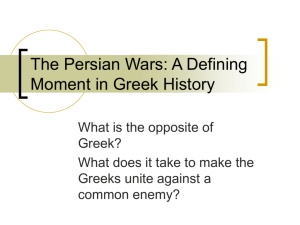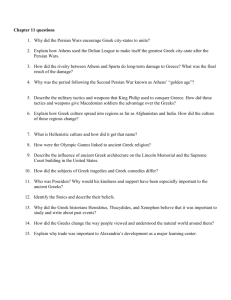Social Studies 2nd Semester Final Study Guide
advertisement
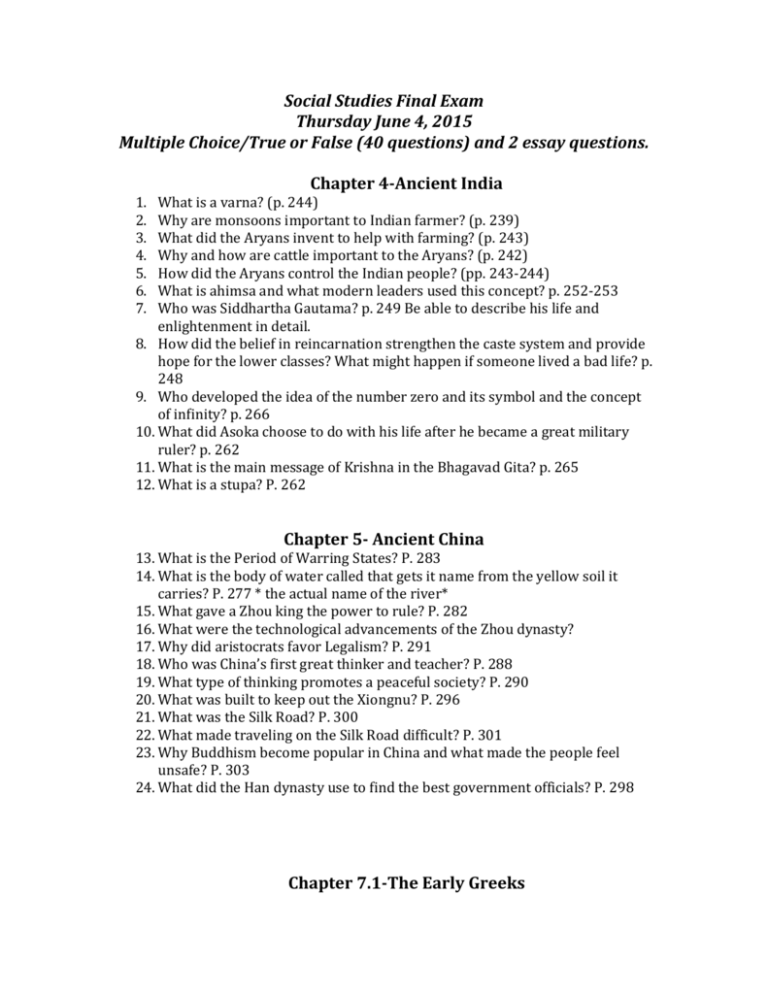
Social Studies Final Exam Thursday June 4, 2015 Multiple Choice/True or False (40 questions) and 2 essay questions. Chapter 4-Ancient India 1. 2. 3. 4. 5. 6. 7. What is a varna? (p. 244) Why are monsoons important to Indian farmer? (p. 239) What did the Aryans invent to help with farming? (p. 243) Why and how are cattle important to the Aryans? (p. 242) How did the Aryans control the Indian people? (pp. 243-244) What is ahimsa and what modern leaders used this concept? p. 252-253 Who was Siddhartha Gautama? p. 249 Be able to describe his life and enlightenment in detail. 8. How did the belief in reincarnation strengthen the caste system and provide hope for the lower classes? What might happen if someone lived a bad life? p. 248 9. Who developed the idea of the number zero and its symbol and the concept of infinity? p. 266 10. What did Asoka choose to do with his life after he became a great military ruler? p. 262 11. What is the main message of Krishna in the Bhagavad Gita? p. 265 12. What is a stupa? P. 262 Chapter 5- Ancient China 13. What is the Period of Warring States? P. 283 14. What is the body of water called that gets it name from the yellow soil it carries? P. 277 * the actual name of the river* 15. What gave a Zhou king the power to rule? P. 282 16. What were the technological advancements of the Zhou dynasty? 17. Why did aristocrats favor Legalism? P. 291 18. Who was China’s first great thinker and teacher? P. 288 19. What type of thinking promotes a peaceful society? P. 290 20. What was built to keep out the Xiongnu? P. 296 21. What was the Silk Road? P. 300 22. What made traveling on the Silk Road difficult? P. 301 23. Why Buddhism become popular in China and what made the people feel unsafe? P. 303 24. What did the Han dynasty use to find the best government officials? P. 298 Chapter 7.1-The Early Greeks 25. How did Greeks make their living due to Greece’s watery location? 26. Who became the major trading power in the Mediterranean in 1400 B.C 27. How were Greek citizens treated as equals? Chapter 7.2- Sparta and Athens 28. What is the difference between an oligarchy and a democracy? What citystates used these systems of government? 29. What were the boys of Athens taught to do? 30. Who led the Spartan government? What council did they lead? Chapter 7.3-Persia attacks the Greeks 31. Who did Sparta and Athens send in to fight the Persians? 32. What helped the Persians connect all of their controlled lands? 33. How did the Greeks defeat the Persians in the Battle of Marathon? Chapter 7.4-The Age of Pericles 34. What was the main occupation of Athenian women? 35. What did Pericles believe was more important that one’s social standing? 36. What caused the Peloponnesian War? Chapter 8.1- The Culture of Ancient Greece 37. What did the Greeks believe controlled nature? 38. What is the difference between a tragedy and a comedy? 39. What are three ideas that Greek artists hoped would inspire people? Chapter 8.2- Greek Philosophy and History 40. Who believed that students should use their time to improve themselves? 41. What principle of Aristotle do scientists use today? 42. What did the Sophists teach people to do? Chapter 8.3-Alexander the Great 43. What is the Hellenistic era? 44. Why is Alexander considered a great military leader? 45. How did Alexander plan to unite the people in his new empire? Chapter 8.4-The Spread of Greek Culture 46. What is the difference between plane geometry and solid geometry? 47. What city was at the center of the Greek theater? 48. Who was the most famous Greek mathematician?
